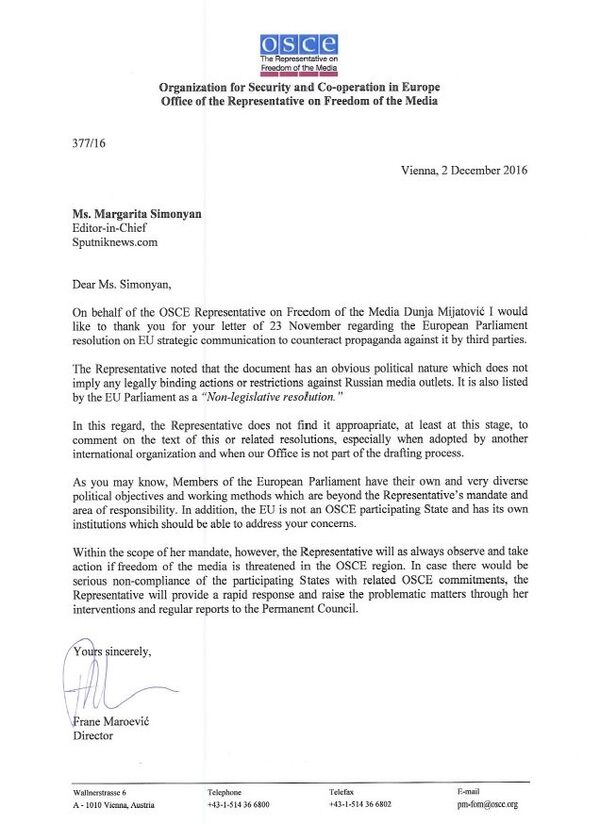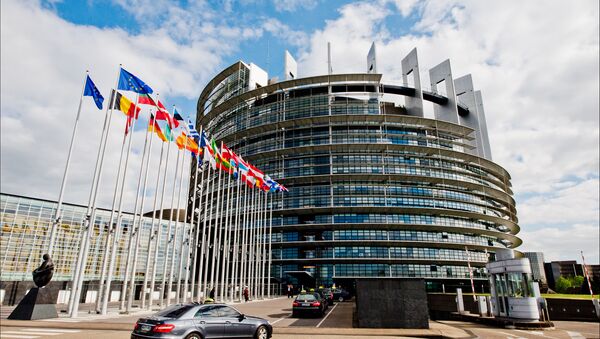In its letter, the Office of the OSCE Representative on Freedom of the Media specifically pointed to political undertones of the European Parliament's resolution.
"The Representative noted that the document has an obvious political nature which does not imply any legally binding actions or restrictions against Russian media outlets. It is also listed by the EU Parliament as a 'non-legislative resolution'," the letter from the OSCE read.
It also promised to take action so that the press freedom can be protected within the OSCE.

"Within the scope of her mandate…the Representative will as always observe and take action if freedom of the media is threatened in the OSCE region," according to the letter.
Late last month, the EU Parliament passed a draft resolution proposed by Polish EU lawmaker Anna Elzbieta Fotyga "On EU strategic communication to counteract propaganda against the bloc by third parties."
Equating countering the Russian media with the resistance to the Daesh terrorist group, the resolution said that Sputnik and RT posed a danger to European unity and called for extra European Commission funding for counter-propaganda projects.
Out of 691 lawmakers taking part in the vote, 304 voted in favor of the resolution, 179 voted against it, and 208 abstained. Therefore, less than half of the lawmakers supported the document.




